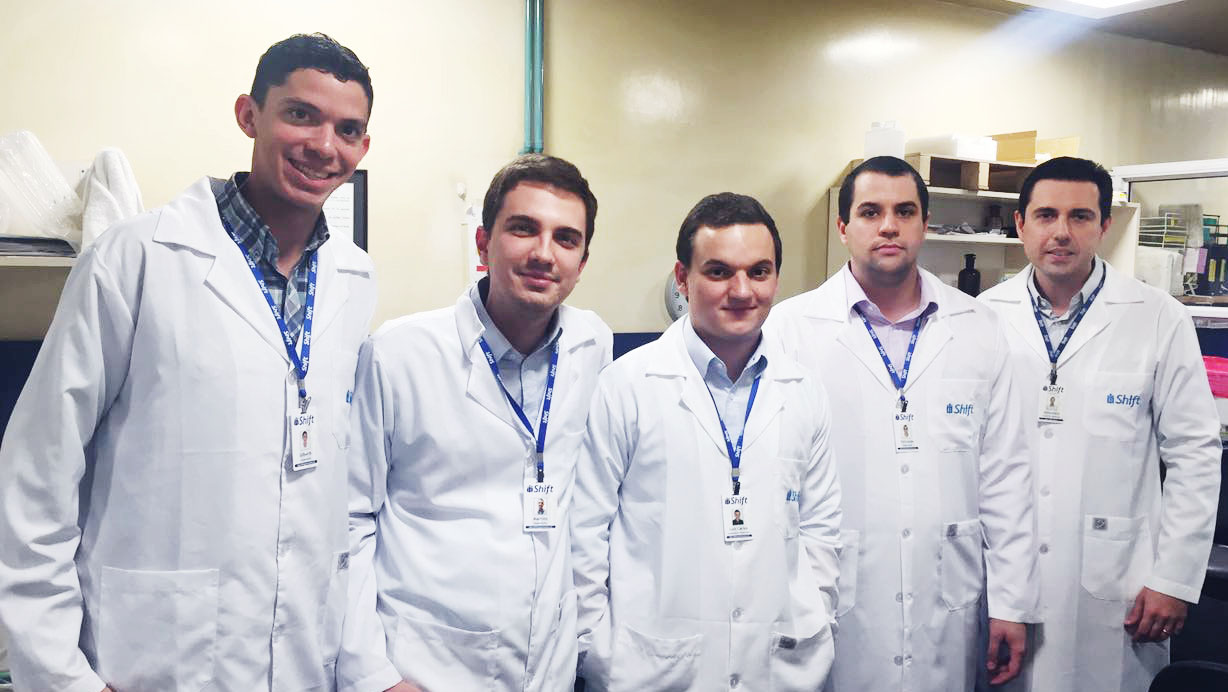
With growth of 20% per year, the company reached security
needed for international expansion
The internationalization of Brazilian companies grew by 7%, according to a survey prepared by Fundação Dom Cabral and released last year. According to the study, 59.6% of the companies surveyed intended to expand their operations in markets where they already operate abroad, 4.3% planned major expansions and 34% stated that they would maintain stable operations that year.
Shift, a company based in São José do Rio Preto (SP), which develops technological solutions for clinical laboratories, participates in this internationalization movement, which represents the strength of national software, and found in Latin America good opportunities to launch itself in the foreign market. .
After conquering clients in Uruguay, consolidating in Brazilian territory and growing 20% per year, the company achieved the necessary security for international expansion. “We currently have more than 120 customers in about 20 Brazilian states. We have achieved important leadership in the sector with a select group of outstanding clients across the country, so we felt that it was the right time to take this strategic step”, reveals Marcelo Lorencin, president of Shift. The company, which started to focus more efforts on international expansion about two years ago, recently won six new customers in Argentina.
Differentials for internationalization
At the head of the project, as director of Shift Hispanoamerica, is Macarena Remedi, an engineer graduated from the Universidad de la República Oriental del Uruguay and the École Nationale Supérieure des Télécommunications de Bretagne, where she also studied Master of Science in Business and Services. The executive believes that the differential for this achievement was the complete and integrated management offered by Shift's solutions, something that is not common in the Argentine market. “It is a mixed market, where some laboratories have integrated solutions and others still have solutions developed in-house. With the rapid evolution of the technology used in this segment, those who have internal systems are prevented from performing some updates, and this ends up restricting the growth of the business”, he explains.
The differentials pointed out by the director are also recognized by new customers. “Shift was chosen after a careful evaluation of the system's functionality, as an integrator of the different operations of our laboratory. In addition, the entire infrastructure of technological and human resources gave us the guarantee of the continuity of long-term projects and are aligned with our expansion strategies”, says Luis Horacio Quevedo, owner partner of the IACQ laboratory – Instituto de Análisis Clínicos Quilmes.
For Roberto Gentili, director of the IACA Laboratory, in comparison with alternatives in the Argentine market, both national and foreign, Shift proved to be the most appropriate. “Aspects such as technology, robustness, efficiency, possibility of process traceability and easy system integration were fundamental for our decision”.
During the two years of negotiations, the company brought representatives of Argentine laboratories to visit its headquarters and follow the work developed in some of the clients in Brazil. The strategy was important for the final decision, as pointed out by Quevedo. “The satisfaction of the users visited in Brazil, in addition to the proof of concept carried out by Shift at the headquarters of a highly complex laboratory in Argentina and the close relationship with its customers were factors that helped us to be confident in our decision for the company's solutions ”, he adds.
The Shift project, which is now in the implementation phase, includes the opening of a local office and a team of Brazilian analysts who moved to Argentina, in addition to hiring local employees. The IACQ Laboratory was the first to receive the training and is already operating with the Shift LIS platform. “We chose to divide the implementation into phases, to serve everyone in the best way, both the larger and more complex laboratories, as well as the smaller ones, which are also fundamental in their areas of operation. All clients will be operational by the end of the first half of 2017”, concludes the director.












